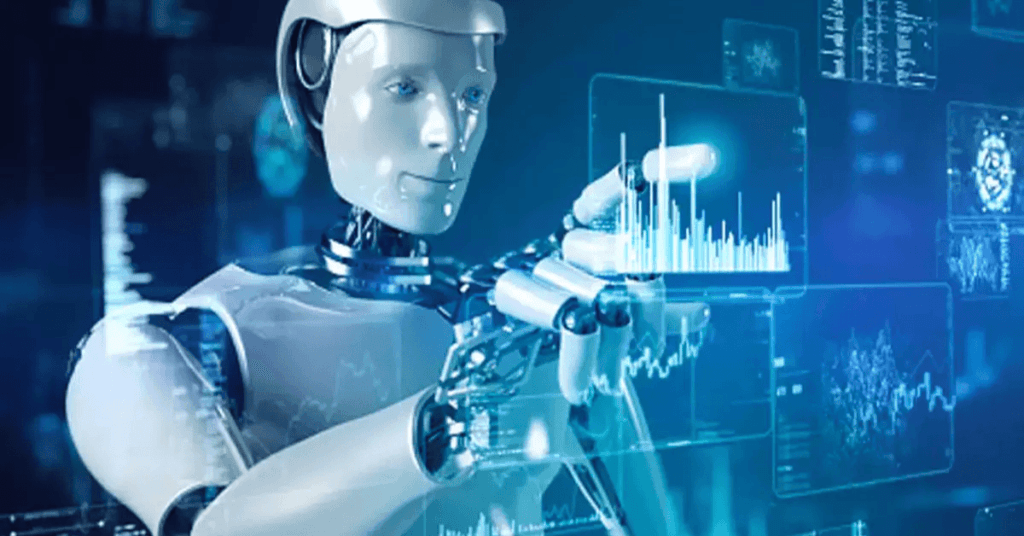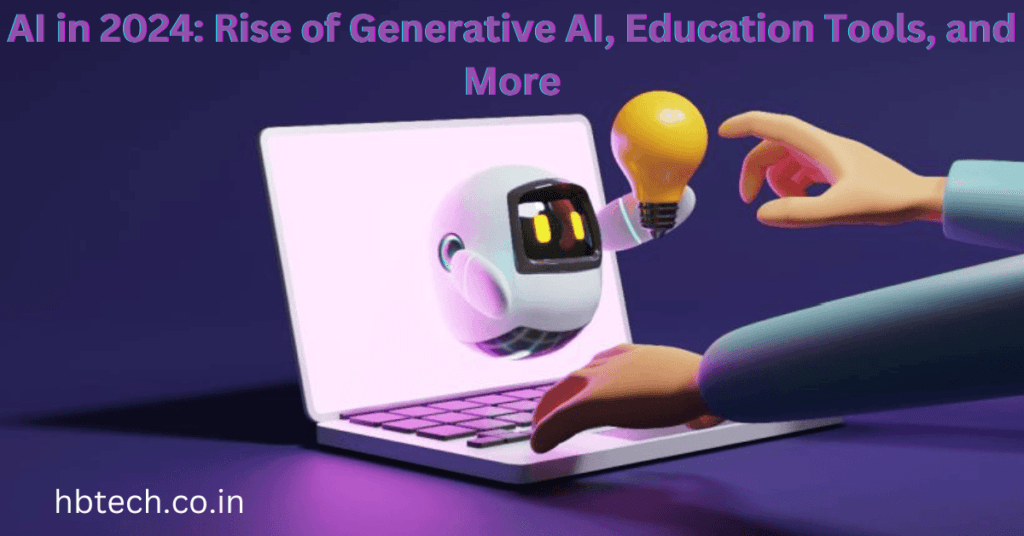
Artificial Intelligence (AI) continues to evolve rapidly , impacting nearly every industry and changing how we live and work. As we move through 2024, several AI trends are emerging as particularly influential. Let’ s explore six of these trends in simple terms to understand how AI is shaping the future.
Generative AI: Creative Technology at Work
Generative AI tools like ChatGPT and DALL·E can create text, images, videos. and more. These systems are transforming industries by making creative processes faster and more accessible. For example , businesses are using AI to generate marketing content, while filmmakers and artists use it to design visuals and animations. Educators also find it helpful for creating customized learning materials.
AI in Education: Smarter Learning Tools
AI is changing how students learn by making education more personalized. Tools like Character.ai allow students to get instant feedback from AI tutors. Teachers can use AI to develop custom lesson plans, making learning more effective and engaging for different types of learners.
Multimodal AI: Connecting Different Types of Data
Multimodal AI is a technology that can understand and process data from various sources like text, images, and audio. For instance, a medical tool could combine patient records, scans. , and symptoms to help doctors make better diagnoses. This kind of AI also makes technologies like virtual reality and interactive media more immersive and accessible.
AI Ethics and Trust: Building Fair and Transparent Systems
As AI becomes more common, there’s a growing focus on making sure it’s used responsibly People are concerned about AI being biased or making decisions that aren’t transparent. Companies and governments are working to create rules and tools that ensure AI is fair, accountable, and trustworthy.
Quantum AI: Supercharged Problem-Solving
Quantum AI combines artificial intelligence with quantum computing to tackle problems that are too complex for regular computers. This can lead to breakthroughs in areas like discovering new medicines, improving climate models. and managing financial risks.
AI-Powered Automation: Boosting Efficiency
Automation through AI is becoming a game-changer for industries. For example, factories use AI-powered robots for quality checks, while hospitals use AI to assist in surgeries. This kind of automation reduces costs, speeds up processes , and ensures better results.
Future of AI
These trends highlight the incredible potential of AI, but they also remind us to approach its development thoughtfully. Whether it’s enhancing creativity, personalizing learning, or solving global challenges, AI is reshaping our world. At the same time, we need to ensure it’s used in ways that are fair and beneficial for everyone.
Frequently Asked Questions(FAQs)
What is Generative AI, and how is it being used?
Generative AI refers to systems like ChatGPT and DALL·E that can create text, images, videos, and other types of content. These tools are used in industries such as marketing, entertainment, and education to automate creative tasks, produce customized materials, and enhance workflows.
How is AI transforming education?
AI is making education more personalized and accessible. Tools like AI tutors provide real-time feedback, while systems can design custom lesson plans based on a student’s needs. These innovations are helping teachers and students create more effective and engaging learning experiences.
What is Multimodal AI, and why is it important?
Multimodal AI combines and processes multiple types of data—such as text, audio, images, and videos—at once. This capability is vital for applications like medical diagnostics, where integrating different data sources improves decision-making, and virtual reality, where it enhances immersive experiences.
How is AI-powered automation improving industries?
AI is automating tasks across industries like manufacturing and healthcare. Examples include robots performing quality checks in factories, AI assisting in surgeries, and generative AI creating content. Automation increases efficiency, reduces costs, and fills gaps caused by labor shortages.
What challenges are associated with these AI trends?
Challenges include ensuring ethical AI usage, avoiding biases, protecting privacy, and addressing security concerns. As AI becomes more powerful, these issues require careful consideration to ensure it benefits everyone fairly.









